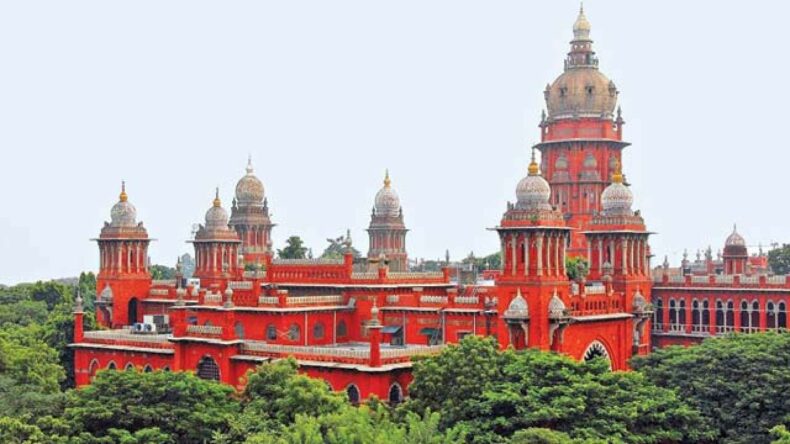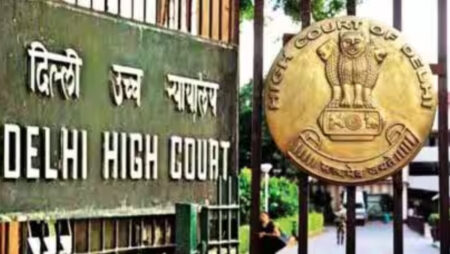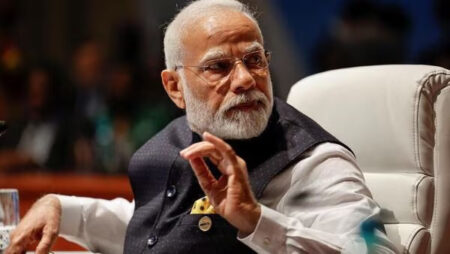
Caste no bar says, Madras HC on June 26th, 2024, by following the Judicial Precedent given by SC in the year 2016 and said that the appointment of a temple priest is a secular job and not a hereditary right.
Challenging the Advertisement in 2018:
This case came before the bench on 2018 as a petition filed by Muthu Subramania Gurukkal challenging the validity of an advertisement in 2018 by the Tamil Nadu department of Hindu Religious and Charitable Endowments (HR&CE) for the appointment of Archakas/Sthanikam (priests) at Sri Sugavaneswar Temple pleading that it is an “Infringement of his Heriditary right”
Infringement of Petitioner’s Hereditary Right:
The petitioner stated that right to be an archaka was vested in him by his ancestors from “Time immemorial” so it should be regarded as a customary practice rather than treating it as a job.
The petitioner family belongs to the family of Sivachariyars who had adorned the position as Archakas/Sthanikam in the temple by passing over their right to the next generations. The petitioner acquired the position of Sthanikam from his grandfather.
Justice Venkatesh’s Judgement – Priest is a Secular job.
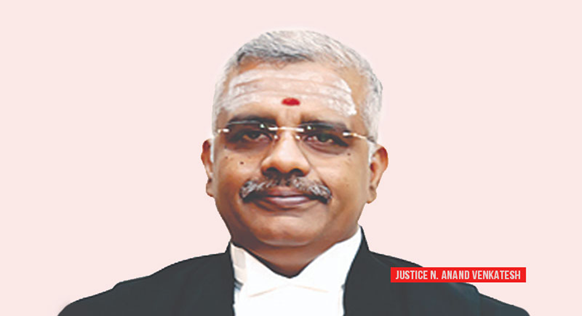
On Monday, Justice Venkatesh announced the Judgement by citing the 2016 SC’s Judgement on the case: “ADISAIVA SIVACHARIYARGAL SEVA SANGAM V GOVERNMENT OF TAMIL NADU”, where it was held that the appointment of priest is a secular function and cannot be claimed as a hereditary right. SC stated that the work of priest is an integral part attached to the religion and it should be regarded as a secular function and not to be viewed as a hereditary right.
Considering the fact that the temple in question is an Agamic temple and it is abided by the Agamic rules for the appointment of priest. The court directed the Respondent of this case to issue an advertisement including the observations cited by the SC. The bench said that even the Petitioner can take part in the appointment process and till then he can continue to perform the poojas in the temple.
Caste No Bar in appointing the priest:
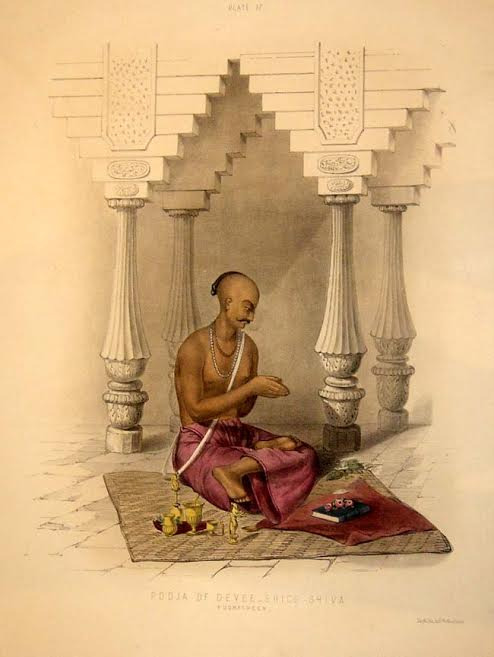
In responding to the additional pleas raised by the Petitioner and to bring more clarity for the future appointment of Priests. Justice Venkatesh citing the 2016 SC judgement stated that “If a person is well versed and an accomplished person in the agamas and rituals necessary to be performed in the temple then his caste and creed will not be a bar in his appointment as a priest.
Debate for Decades answered by SC:
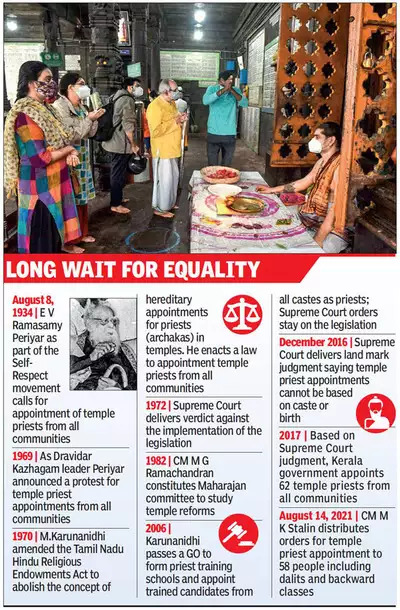
The question whether the Priest is a secular job or a hereditary right which is strongly attached to the religion was a question raised by the society for a long time which started in the year of 1954.
The supreme court in 2016 came up with a Judgement stating that the appointment of priest is not connected with the Heriditary right and should be viewed as a secular job which is an integral part of the religion
And added that a person is entitled to be appointed as a priest irrespective of his caste and creed and the only criteria for his appointment is that person should be well versed and an accomplished person in the agamas and the rituals performed in the temple.
Pioneer of this Revolution in 1972:
“Seshammal & Ors V State of Tamil Nadu”:
This case was the pioneer which paved the way for today’s judgement even in 2016 the SC cited this case while delivering the judgement,
In this case it was held that that the purpose of the Act was to regulate secular functions like management and administration, which includes the appointment of the archaka







